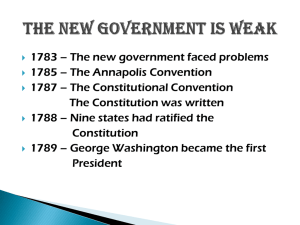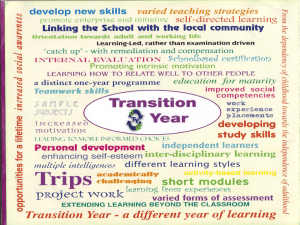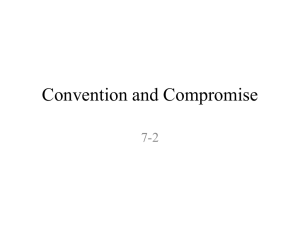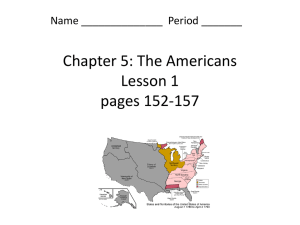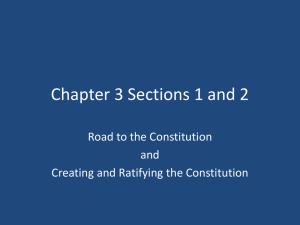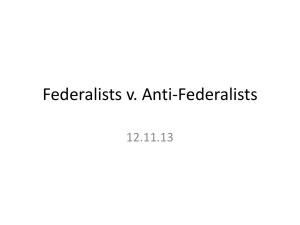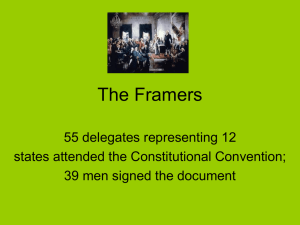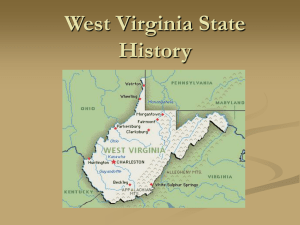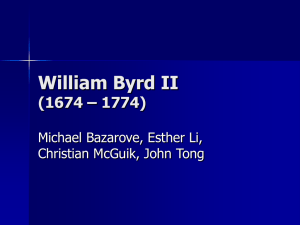“We, the People vs. We, the State”:
advertisement
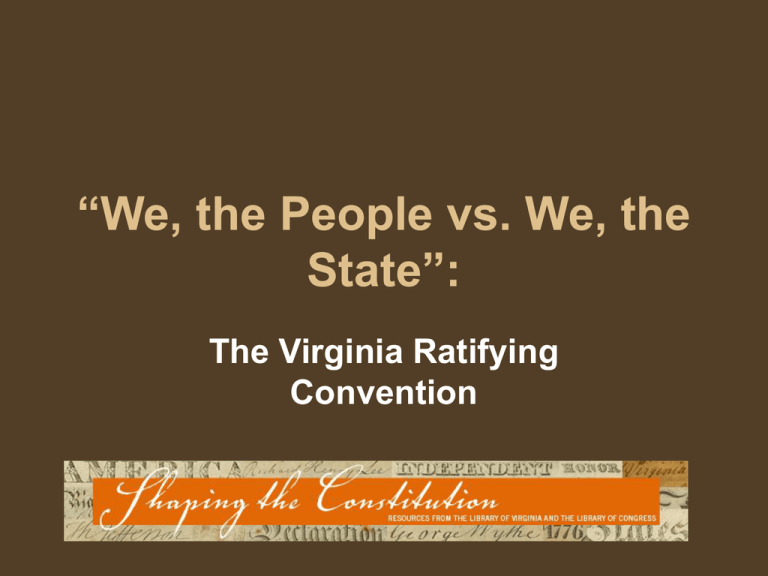
“We, the People vs. We, the State”: The Virginia Ratifying Convention Great minds don’t always agree. • During the Virginia ratifying convention, what were the arguments for and against the new Constitution? Federalists Anti-Federalists • Supported the Constitution created by the Constitutional Convention of 1787 • Did not support the Constitution created by the Constitutional Convention of 1787 • James Madison • George Washington • Patrick Henry • George Mason Anti-Federalists Patrick Henry • Lawyer • Anti-Federalist: feared that the Constitution would create too strong a national government that would, without a bill of rights, endanger the liberties of Americans • Represented Virginia at the First and Second Continental Congresses • Attended four of Virginia's five Revolutionary Conventions • Commonwealth of Virginia's first governor George Mason • Planter • Anti-federalist: argued that the government would be too powerful, that it blended, rather than separated, the legislative and executive powers, and that it lacked a bill of rights • Served in three Virginia Revolutionary Conventions and wrote first drafts of the Virginia Declaration of Rights and the first Virginia constitution William Grayson • Lawyer • Anti-Federalist: feared the Constitution would allow northern and northeastern states to form majorities in Congress against the interests of southern states and also jeopardize essential interests of westerners • Represented Virginia in Congress from 1785 to 1787 James Monroe • Lawyer • Anti-Federalist: believed the Constitution needed a bill of rights and that the executive should be directly elected Image courtesy of the Library of Congress: http://hdl.loc.gov/loc.pnp/cph.3g12215 • Representative to the Continental Congress 1783 Federalists James Madison • Politician/planter • Federalist: “Father of the Constitution,” he drafted the Virginia Plan, which was the basis for the debates at the Convention of 1787 • Attended the fifth Virginia Revolutionary Convention and drafted one of the amendments to the Virginia Declaration of Rights that guaranteed all men the right to the free exercise of religion • Virginia Representative to the Continental Congress Edmund Pendleton • Lawyer • Federalist • Member of the First and Second Continental Congresses • President of the Virginia Committee of Safety that governed the colony from the summer of 1775 to the summer of 1776 • President of the fourth and fifth Virginia Conventions • President of the Virginia Ratifying Convention George Nicolas • Lawyer • Federalist • Served in the House of Delegates, 1778–1779, 1781–1782, 1783, and 1786–1788 Edmund Randolph • Federalist • Lawyer/ Politician • Federalist: felt that adopting the Constitution was the best way to keep the states together as a union. • First attorney general of the Commonwealth of Virginia (1776– 1786) • Delegate to the Continental Congress (1779, 1781–1782) • Governor of Virginia (1786–1788) • Delegate to the Philadelphia Constitutional Convention (1787) John Marshall • Lawyer • Federalist • Later the first chief justice of the U.S. Supreme Court Image courtesy of the Library of Congress. <http://hdl.loc.gov/loc.rbc/bdsdcc.c0301>

